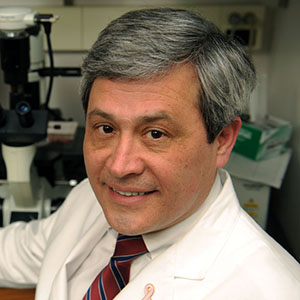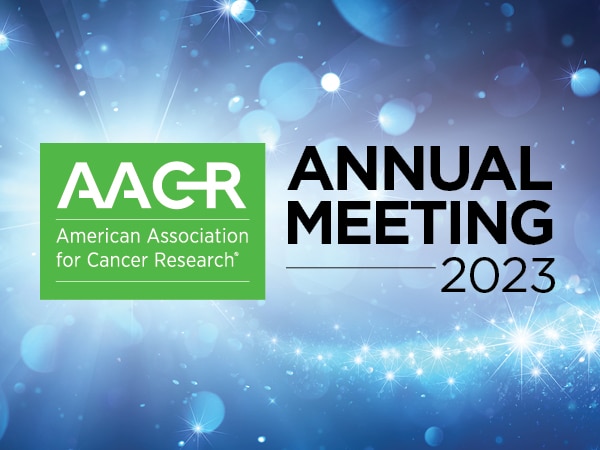New AACR Grants for Young Investigators Support the Future of Cancer Research
In June, the American Association for Cancer Research (AACR) launched a new funding initiative – the AACR NextGen Grants for Transformative Cancer Research. These grants, intended to stimulate highly innovative research from young investigators, are the vision of AACR Past-president Carlos L. Arteaga, MD. Throughout his presidency, Arteaga championed the development of a grant mechanism that would springboard talented young scientists into successful careers in cancer research, while also generating fresh ideas and new approaches that would lead to novel breakthroughs in the field. His motivation to lead this initiative stems from the funding crisis that continues to loom over scientific research, which tends to particularly impact early-career researchers.

Carlos L. Arteaga, MD, immediate past-president of the AACR, championed the development of the AACR NextGen Grants for early-career investigators.
Indeed, young investigators are facing tough times, resulting in many moving on to new career paths outside the bench or clinical investigation. This leaves more senior researchers, like Arteaga, a bit nervous for what it could mean for the future of cancer research. “We are all concerned about the loss of young investigators from scientific research, especially in the field of cancer research,” says Arteaga. “Our inability to retain these talented individuals almost certainly will delay important new discoveries needed to move the field forward.”
It is this problem that Arteaga hopes that the NextGen Grants for Transformative Cancer Research will help alleviate. “This funding mechanism should contribute to the retention of young scientists dedicated to eradicating cancer,” says Arteaga. “This can only be good for the future of cancer research.”
Arteaga hopes that the NextGen Grants mechanism will mark an important defining moment for the AACR as a funding organization. “The AACR is very proud to support this initiative,” he says. “It strengthens our commitment to the careers of young investigators and our efforts in promoting innovative cancer research. It also contributes to an important component of our mission – expanding the pool of talent that can apply major discoveries at the bench to clinical investigation, and eventually, cancer care.”
When asked about his vision for the future of the NextGen Grants program, Arteaga is optimistic. “My vision is that this program will continue to support young investigators for many years ahead,” he says. “We also hope, upon attraction of additional support, to expand the number of grants provided each year.” Beyond simply providing crucial funding to retain talented young investigators, Arteaga also has greater hopes for the NextGen Grants, commenting that this mechanism has the potential to fund important new discoveries in cancer research. “Ten years from now we will look back and realize that NextGen grantees made some of those transformative observations.”
For young investigators who are diligently working to establish themselves as leaders in the cancer research field, Arteaga has a few words of encouragement: “I’d advise them this is a great time to jump-start a career in cancer research and that the AACR is ready to support them.”
The deadline to submit a Competitive Letter of Intent for the NextGen Grants for Transformative Cancer Research is Monday, Aug. 10, 2015. For more information, please visit www.aacr.org/nextgen.



